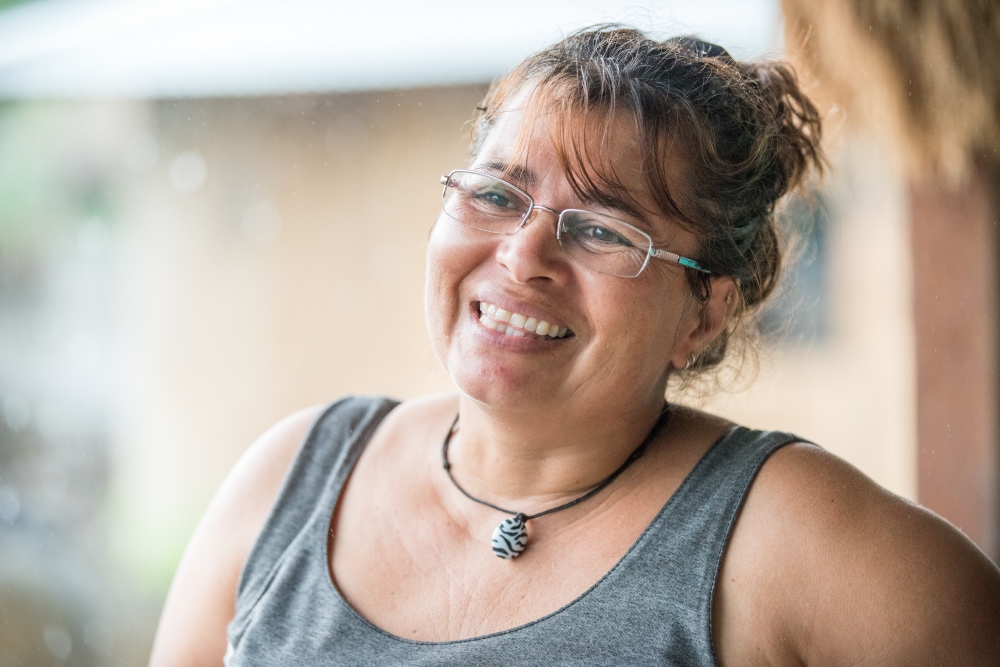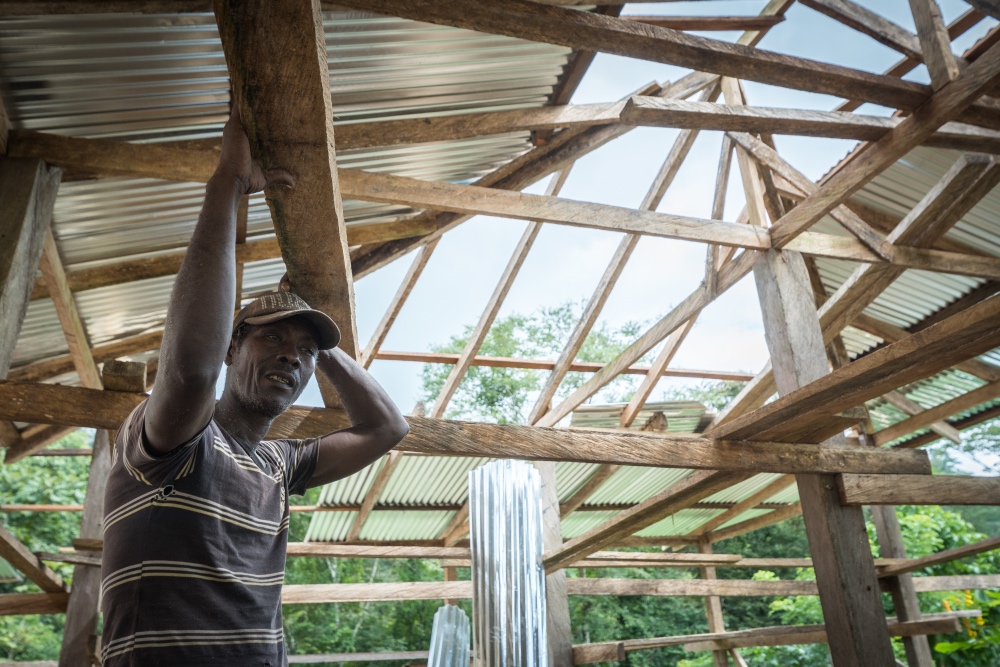
In a special report for Sight, ALBIN HILLERT reports on how churches in Colombia are helping former rebels transition from a life of guerrilla warfare to peaceful co-existence with local communities…

Manuel and his friends have spent three days mounting a new wooden construction in San José de León, northwest Colombia. Following the peace treaty in 2016, guerrilla ex-combatants have purchased and now cultivate lands here, to rebuild a peaceful life. PICTURE: Albin Hillert.
“The difference is to not have to get up at six in the morning and check where the enemy is. Now things have changed. We get up in the morning to look after our kids, to check on the animals that we have.”
Joni Pertuz is 40 years old, and has spent a large part of his adult life as a combatant with the FARC guerrilla (Revolutionary Armed Forces of Colombia).
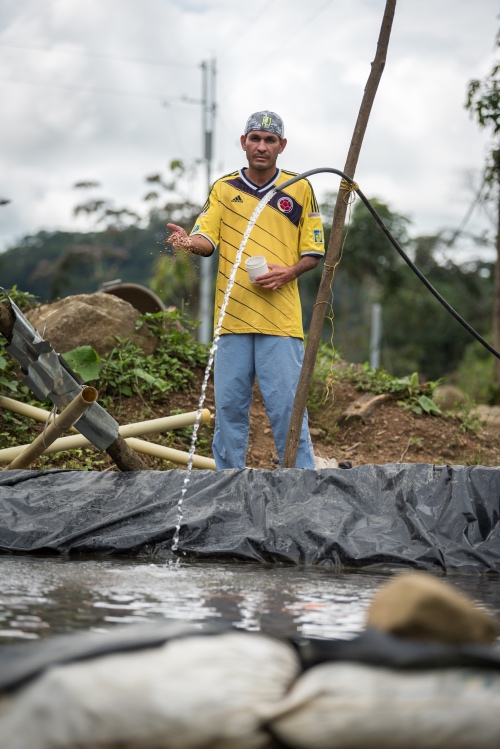
Joni Pertuz, feeding a school of 300 Tilapia fish outside his house. PICTURE: Albin Hillert.
Today, he feeds a school of 300 Tilapia fish outside a small house in the valley of San José de León, northwest Colombia, where he and a group of ex-combatant families have settled to build a life in peace, following the 2016 peace treaty between FARC and the Colombian government.
But transitioning from a life of guerrilla warfare to peaceful co-existence with local communities is not without challenges.
“Not only has the implementation of the peace treaty been slow. Ex-combatants also find themselves under a lot of stress and pressure,” explains Rev John Hernández, a Lutheran pastor working on the project ‘De la Guerra a la Paz’ (‘From War to Peace’).
Part of a broader ecumenical initiative called ‘Waking the Giant‘ run by the Lutheran World Federation, the project is one example of churches around the world mobilising to achieve the United Nations Agenda 2030, and the Sustainable Development Goals.
Supporting a total of more than 300 families in the Department of Antioquia, the Evangelical Lutheran Church of Colombia seeks to alleviate the risk of re-victimisation or relapse into violent conflict, by offering support both to ex-combatants and the communities they are reintegrating into.
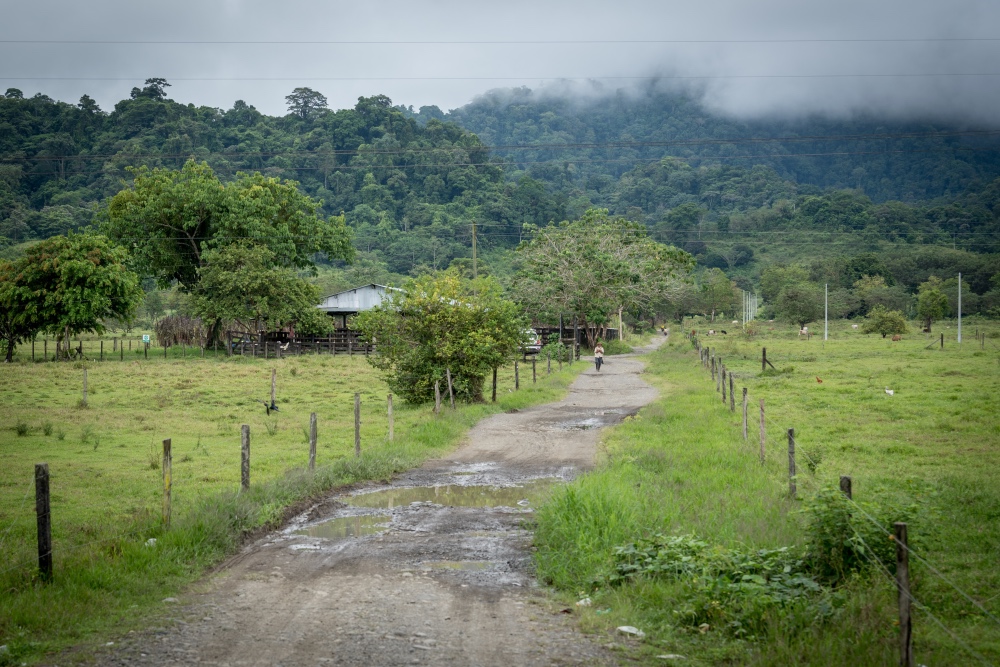
San José de León, Colombia. PICTURE: Albin Hillert.
“The Urabá area in northwest Colombia is a strategically important corridor for trade into Central America, with resulting drug trafficking and arms trade still keeping armed groups active in the area,” Hernández explains. “Many ex-combatants face trauma and insecurity, and a lack of fulfilment by the Colombian government in transition of land ownership to FARC members makes the situation difficult.”
“As a church in this instance, we offer not so much religious as we do practical accompaniment,” Hernández says. “We offer support on trauma management, self-protection and legal issues.”
But the community in San José de León is also unique, Hernández notes, as this group of ex-combatants hasn’t just settled on transitional lands offered by the government as part of the peace process. Instead, they’ve purchased 36 hectares of land, which is now legally theirs.
A group of 27 ex-combatant families first purchased the lot of land in San José de León, moving in from nearby Córdoba to settle alongside some 50 families of campesinos already living in the area.
Two years later, 50 ex-combatant families live in the emerging community, which hosts a small restaurant, various committees for community organisation and development, and which cultivates the land through agriculture, poultry and fish farming.
But that’s just the sunny side of the story.
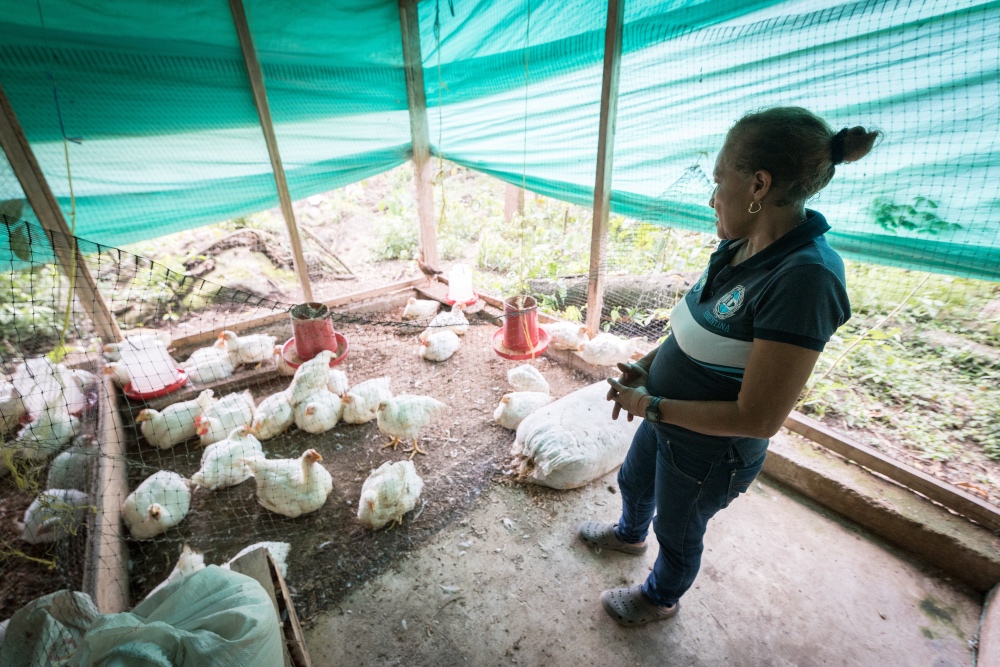
Aida, who was part of the first group of ex-combatant families to settle in San José de León, tends to the community’s poultry, caring for the chickens and hens, and collecting the eggs they provide. PICTURE: Albin Hillert.
”The first ones who came here were those who were with comrade Rubén,” says one of the community’s woman leaders, Aida, with reference to former guerrilla commander Joverman Sánchez Arroyave, known by the name of war Rubén Cano.
“Others decided to stay in Córdoba. But then came the paramilitaries and drove them away from the lands they were living. And as they didn’t have any place to live, they came here. You see, here we can give refuge to comrades who don’t have anywhere to go,” she says.
Former commander Rubén reflects, “the dream is to see this country in peace, that as Colombians we can stop killing each other. That is the great longing, of FARC members, and I know, of many Colombians.”
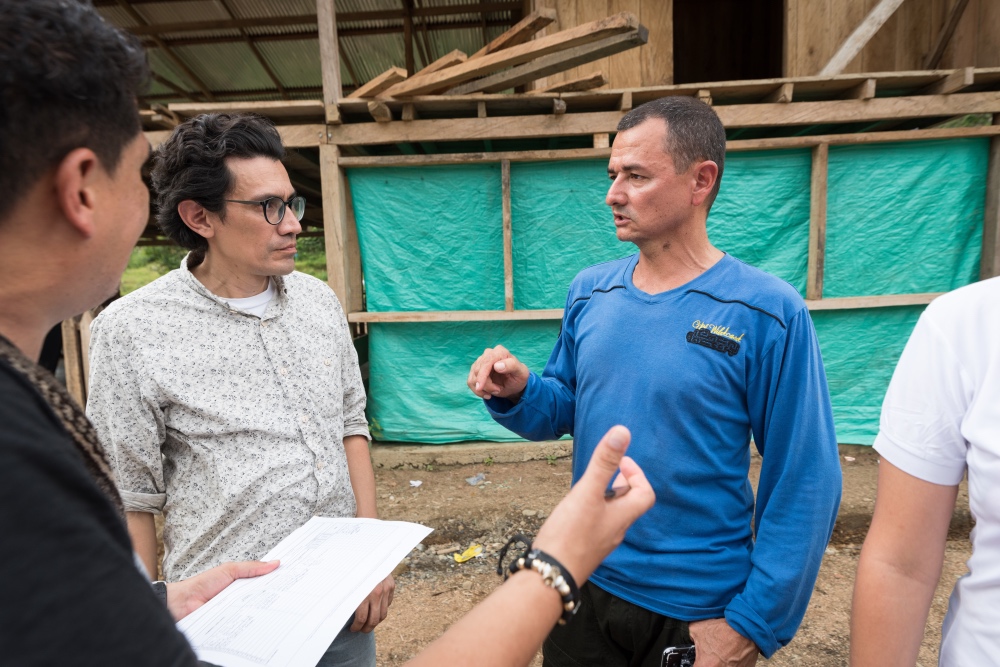
Joverman Sánchez Arroyave, a former FARC commander once known by the name of war Rubén Cano. PICTURE: Albin Hillert.
“When we arrived the community here didn’t know what to expect. ‘Will there be conflict, or killings or threats?’ But there has been none of that. We have come here to work, and to work together with the community. That’s what we are doing,” he adds.
“It’s like building a new life again. Like starting to dream again, to believe that there is a possibility of leaving the life you have lived behind, to close the book you were reading and open a new one,” adds Luz Alcira Ocampo Gómez, who today participates in the work of committees on both gender and health in the community.
“It’s like having a vision – both frightening and like you really want to continue, to hope, and to build something new,” she concludes.
Below – Luz Alcira Ocampo Gómez, part of both the gender and the health committees of the community in San José de León. PICTURE: Albin Hillert.
